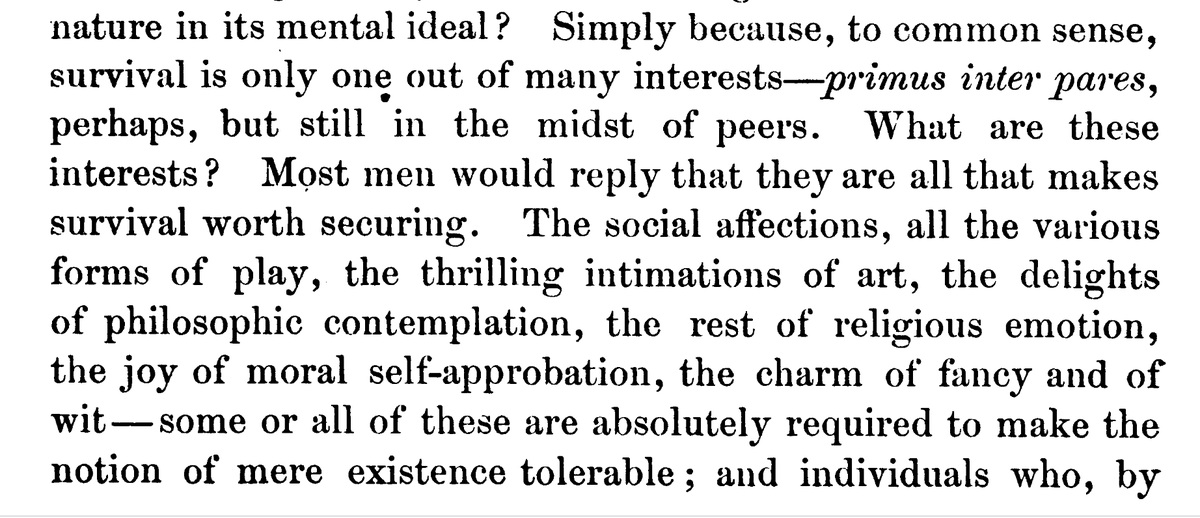
I have some thoughts about this piece by Michael Gerson.
Background (disclosure): I'm not American, I live in the US, I'm a Christian, and as an academic, I have lots of non-religious friends.
My perspective on this is as an insider-outsider 1/
washingtonpost.com/opinions/promi…
Background (disclosure): I'm not American, I live in the US, I'm a Christian, and as an academic, I have lots of non-religious friends.
My perspective on this is as an insider-outsider 1/
washingtonpost.com/opinions/promi…
So, as is generally known Christianity in the US has been declining at a rapid pace. See this Pew forum report (from Oct 2019). Note, the decline is now also notable among Evangelicals. But 2 factors have further accelerated the decline 2/
pewforum.org/2019/10/17/in-…
pewforum.org/2019/10/17/in-…
1. The pandemic. It will have huge effects due to permanent closure of churches, but also solidifying decline in attendance, see e.g., here churchanswers.com/blog/five-type… 3/
2. The link between politics and Christianity in the US. This is a very complex issue, but in brief: there is a kind of package-deal white Evangelical Christianity that ties right wing politics with traditional gender roles, rugged masculinity to Christian beliefs 4/
For an overview see this excellent book.
Kobes Du Mez patiently analyzes the link between rugged masculinity and Evangelicalism, but she also shows the political links and how white Evangelicals have been a very influential voting bloc. 5/
wwnorton.com/books/97816314…
Kobes Du Mez patiently analyzes the link between rugged masculinity and Evangelicalism, but she also shows the political links and how white Evangelicals have been a very influential voting bloc. 5/
wwnorton.com/books/97816314…
White Evangelical Christians now account for about 18% of registered US voters - baptistnews.com/article/this-y…
Note this: “Republicans are reliant on the group’s support and mobilization in order to accumulate 270 Electoral College votes.” 6/
Note this: “Republicans are reliant on the group’s support and mobilization in order to accumulate 270 Electoral College votes.” 6/
And as this article and Du Mez' book indicates, this reliance of Republicans on white Evangelicals as a faithful voting bloc looong predates Trump. In that respect, their support for Trump is not so strange/unprecedented 7/
Now, @MJGerson writes "If we should encounter someone who believes — honestly and adamantly believes — in both the existence of the Easter Bunny and in the resurrection of Christ, it would naturally raise questions about the quality of his or her believing faculties." 8/
And he similarly worries that unwavering support for Trump will "make the critical intelligence of Christians seem limited. And what these leaders say about religion loses in credibility." Worries along those lines make me think of Augustine ... 9/
Augustine worried that if Christian spout ignorant claims about, say, biology astronomy "and talking such nonsense" then non-Christians would "scarcely contain their laughter when they see them to be toto caelo, as the saying goes, wide of the mark." 10/
But anyway, Augustine's worries apply to Christians very much today. Think of Young Earth creationism, the Creation museum, wrong views about climate change, etc etc. So, already, Christians are signaling to non-Christians "We are scientifically illiterate". 11/
The problem, then, runs deeper. It's a huge epistemic rift where Christians are moving further and further away from accepted science and from commonsensical beliefs. But because of their disproportionate political influence, they get away with spouting this nonsense 12/
And then you lose all credibility. The problems run far deeper than
@mjgerson
indicates. I also worry that attempts to salvage Evangelical Christianity from (I think well-founded) criticisms by sophisticated philosophical argument (think WL Craig etc) don't really work 13/
@mjgerson
indicates. I also worry that attempts to salvage Evangelical Christianity from (I think well-founded) criticisms by sophisticated philosophical argument (think WL Craig etc) don't really work 13/
Such philosophy-apologetics stuff (a la Plantinga) only preaches to the converted. It does not establish credibility of Christian beliefs among non-Christians. I think we need to do a lot to try to re-establish some semblance of intellectual credibility 14/
That means being honest, clear-eyed, at least (for God's sake) accepting uncontroversial scientific views, not tying one's religious beliefs to a political party, attempt to engage in good-faith debates with people with different beliefs 15/
Also: When people consider what religious views to adhere to, epistemic considerations are only one part of the story. A lot of research on conversion, religious reaffiliation points to the importance of friends network, of the pragmatic aspects of religion 16/
Of the perceived moral aspects, etc. And also here, quite frankly my non-Christian friends think that Christians are just obsessing the whole time over abortion, birth control, and gay marriage. I'm not saying this doesn't matter, but this is not the core of Christianity! 17/
And there is quite some variability among Christians.
Did you know that a majority of American Catholics think abortion should be legal in most or all cases? See here pewresearch.org/fact-tank/2020… 18/
Did you know that a majority of American Catholics think abortion should be legal in most or all cases? See here pewresearch.org/fact-tank/2020… 18/
While I appreciate the end of @mjgerson's piece, on Advent and hope "The most reassuring message of the season is that the existence of hope does not depend on us", the very existence of Christianity in the US does depend on us! 19/
And right now, it's not looking like an attractive package deal. So, I think this requires some sober self-reflection among Christians not to think of quick political gains, but a long-term vision for the future. /end
• • •
Missing some Tweet in this thread? You can try to
force a refresh



